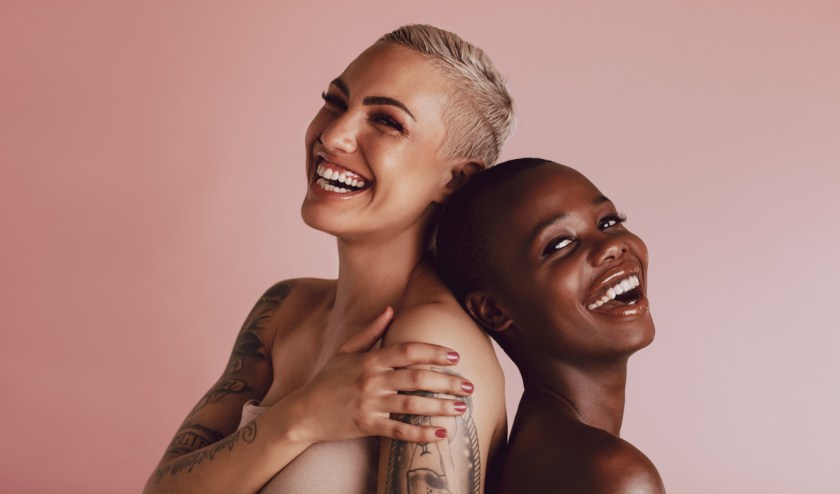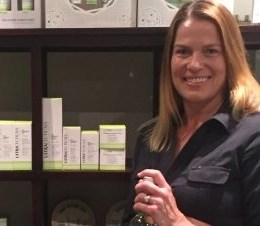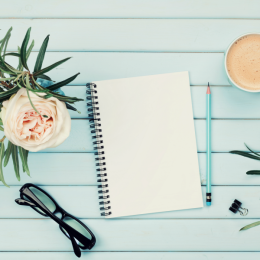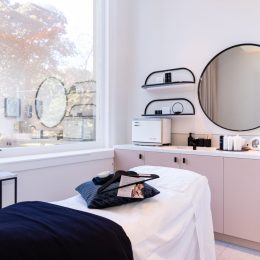The ‘Spectra of Beauty’ report gave the industry a C+ for diversity, as clear progress in media depictions has been made – but more work is needed.
Findings from the national Spectra of Beauty survey of 2,250 Australians have recently been released, offering the first research of its kind into beauty and diversity. Commissioned by Allergan Aesthetics, the report covers aspects such as gender, sexual orientation, ethnicity or cultural background and age.
Overall, the findings were generally positive, especially in the area of representation of gender, with 7 out of 10 respondents liking the beauty industry features “a mix of gender styles”, with the fluidity of masculine and feminine characteristics. In addition, 7 out of 10 overall felt their background and ethnicity are well portrayed in the media. The average score of 6.3 out of 10 when it comes to the local beauty industry’s presentation of diversity in media demonstrates there is certainly scope for improvement.
“It has never been more important than now, for our industry, to take meaningful steps to genuinely include and represent the true beauty a diverse population brings,” said Nathalie McNeil, Associate Vice President and General Manager at Allergan Aesthetics Australia. “As the evolving discussion of diversity sits front and centre, we must recognise there is not a one-size-fits-all approach to beauty, and the focus must increasingly be on advocating and supporting positive self-image, being true to oneself and inclusivity.”
The Spectra of Beauty report also shows Australians surveyed have a strong preference for creating authentic looks reflecting their sense of identity, with 79% believing it has become more acceptable to truly ‘be yourself’ in appearance.
The survey also found Australians presented an evenly balanced view on whether to incorporate traditional beauty standards of their cultural background into their appearance, with 31% saying they ‘embrace their culture’s beauty standards’ while a similar proportion 27% “actively moving against them”. Around 11% seek out a beauty professional who can ‘tailor my look to my cultural background’.
“The deep emotional connections we make between our beauty and external appearance, and our internal sense of identity, is very powerful,” said Dr Davin Lim, Dermatologist, based in Queensland. “Whether it’s cultural heritage, gender or age, we as practitioners need to be open to all views, because everyone has different traits they want to express. The idea of a universal beauty type dictated by social media, seems to be shifting to a more authentic, individualised representation.”
More interesting findings from the report include:
- 45% said they try to convey their sexual orientation through their look; this driver was highest in the younger groups surveyed (Gen Z – 54%; Millennials – 49%; Gen X – 44%; and Baby Boomers – 37%).
- Feeling pressure to look good was higher among younger generations (Gen Z 83%, Millennials 78 %; vs. Gen X 56%, Baby Boomers 26%)
- 43% of those identifying as bisexual and 36% of those identifying as lesbian, feel society expects them to look a certain way; while 27% of respondents who identify as gay felt pressure to look good “to find a partner”.
- 74% of respondents wished there was something they could change about their face.
- Younger people were more likely than older groups to want to improve their facial features (Gen Z – 73% and Millennials – 73%) vs (Gen X – 62% and Baby Boomers – 44%).
- 35% said that having “clear, healthy- looking skin” is a priority.
- 94% of Australians surveyed engage in some form of beauty-related treatment or product from make-up, teeth whitening to anti-wrinkle injections or cosmetic surgery.
Overall, the research shows Australians value the way beauty can contribute to feeling confident (37%) and to feeling good about themselves “regardless of what others think” (37%).
Allergan Aesthetics have chosen to undertake this research to better understand the needs of Australians and how beauty connects to our identity and emotions. “The findings highlight how everyone can find inspiration and confidence through beauty and individualism,” says McNeil. “We need to manage this responsibility with the utmost care, respect and consideration.”
DID YOU KNOW:
There are 5 ways you can catch up with SPA+CLINIC?
- Our quarterly print magazine, delivered to your door. Subscribe here.
- Our website, which is updated daily with its own completely unique content and breaking news.
- Our weekly newsletter – free to your inbox! Subscribe here.
- Our digital magazine – click here to view previous issues.
- Our social media – see daily updates on our Instagram, Facebook & Linkedin





